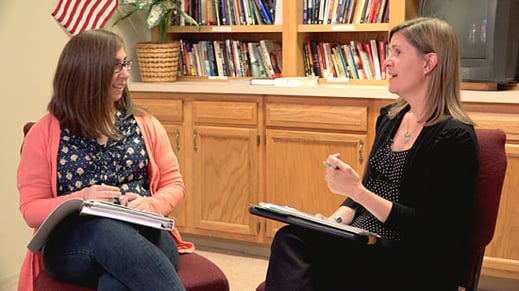

Through your coaching relationships, you coaches bring the CLASS tool to life for the teachers with whom you work. Stories set in real classroom experiences help teachers to make the connection between the CLASS measure and their own classrooms.
It takes time to fill your toolbox with engaging examples that illustrate CLASS interactions. We wanted to give coaches enrolled in IS Essentials, the first module in our four-part Instructional Support program for coaches, a head start. To this end, we created the IS Essentials discussion board, where coaches can share ideas with each other and hear from Teachstone experts.
One participant requested ideas for explaining how brainstorming and planning (two behavioral markers in the dimension of Concept Development) differ. The answer she received from CLASS expert Nicole Schroeer was both fun and informative:
When I think of brainstorming I think of this old theater game we used to play called "Yes, And." The idea behind “Yes, And” is that no matter what scene you enter into, you need to accept it (hence the “Yes”), and can really only modify the scene by adding to it (that’s the “And” part).
Here’s a Baby Improv Example:
Person #1: OMG – that is a hideous dress you’re wearing!
Person #2: Yes, and it smells bad, too! (sniffing armpits and frowning)
So how does that apply to brainstorming? So if we are brainstorming items to take on a class camping trip and one child volunteers, "a tent", I might say, "Yes, that will keep us dry. And I wonder what else we could bring to keep us comfortable over-night." That is sort of an easy example. The problem is if a child says, "Let's bring a kitten." If I'm using the Yes, And paradigm, I would have to say something like, "Yes, and we could bring a little kitty tent for her too!"
That is where I start to think of planning. So now that we've brainstormed all these great items to take camping (including the kitten), how would we actually DO that? This process usually tends to weed out the more impractical ideas. Because the children begin to think through what it would take to bring a kitten on a camping trip. I've asked questions like, "So how would we carry the kitty?" "What would we need to feed her?" "How would we keep her from getting scared?" "How would we keep her from running away?" "How could we make sure no one gets scratched?" And so on.
Check out our Instructional Support Strategies programs, both online and face-to-face, for more opportunities to take a deeper dive into Instructional Support!

